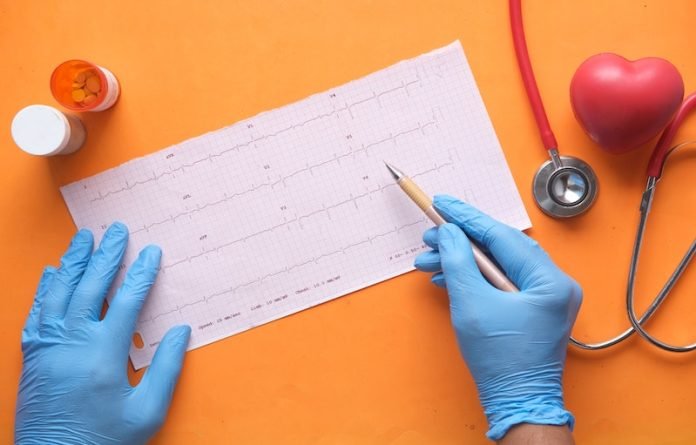
Nearly half of all American adults have elevated blood pressure or hypertension. High blood pressure contributes to 65% of cardiovascular deaths in the United States.
Exponential advances in genomic sequencing technology have enabled scientists to read the 3.4 billion letters that make up an individual’s DNA in a short period of time and utilize this information for research purposes.
In a study from the University of Alabama at Birmingham, scientists find the information from a patient’s DNA can help identify their genetic risk of developing high blood pressure and potentially fatal heart events over a lifetime—a concept known as precision medicine.
This study used genomic information from nearly a half-million individuals from multiple racial and ethnic backgrounds to create a blood pressure “genetic risk score” that captures an individual’s genetic risk for high blood pressure.
In the study, the team applied this score to over 21,000 American adult research participants.
They found that the genetic risk score identified individuals at a higher risk of high blood pressure and was able to predict a person’s risk of developing heart failure, stroke and heart attacks.
This genetic risk score also provides an improvement in the prediction of a person’s risk of these fatal events, especially among younger people.
The team says people can potentially mitigate their genetic risk for heart diseases by improving their lifestyle by reducing weight, increasing physical activity and stopping smoking and by controlling diabetes, blood pressure and cholesterol levels.
In the current era of precision cardiovascular medicine, scientists want to have an individualized assessment of a person’s risk of fatal cardiac events.
This allows them to focus their efforts on preventing fatal heart events through a personalized approach based on their genetic risk.
Generally, genomic medicine does not have a good history of including individuals from minoritized populations in research. Incorporating participants from marginalized populations is one of the biggest strengths of this research.
The findings of the study were cross-verified in more than 50,000 participants of the National Institutes of Health-sponsored All of Us Research Program and the Action to Control Cardiovascular Risk in Diabetes trial database.
If you care about heart health, please read studies about how drinking milk affects risks of heart disease and cancer, and herbal supplements could harm your heart rhythm.
For more information about heart health, please see recent studies about how COVID-19 damages the heart, and scientists find new way to heal heart muscle.
The study was conducted by Vibhu Parcha et al and published in Circulation: Genomics & Precision Medicine.
Copyright © 2022 Knowridge Science Report. All rights reserved.



